Coronavirus case in the property
A person with suspected or confirmed Coronavirus should be isolated to a single room. They should use their own bathroom or the person should clean and disinfect the bathroom after each use. Public Health England have provided guidance on cleaning in a home setting when someone has Coronavirus (1).
Coronavirus lifespan
A study found that Coronavirus is viable for up to 72 hours on plastics, 48 hours on stainless steel, 24 hours on cardboard, and 4 hours on copper. It is also detectable in the air for three hours (2).
How to kill Coronavirus
In third party laboratory testing, specific Dettol products have demonstrated effectiveness against coronavirus. These products are: Dettol Antibacterial Surface Cleanser Spray, Dettol Antibacterial Surface Cleanser Wipes, Dettol All-In-One Disinfectant Spray, and Dettol Disinfectant Liquid. (3).
Cleaning equipment and supplies
You will need normal house cleaning equipment and supplies.
A vacuum cleaner
Bucket and mop
Broom
Cleaning cloths, scourers, dust wipes, kitchen paper
Surface cleaner
Limescale remover
Floor cleaner
Window cleaner
Specific product for sensitive surfaces at home (e.g wood)
Washing powder
We recommend Dettol Surface Cleanser to disinfect surfaces. You can find a full list of cleaning products effective against Coronavirus on the National Environment Agency website (4).
Before cleaning
We recommend removing shoes or using shoe covers as outdoor shoes inside the home can contaminate floors. (5) Open windows and turn on extractor fans as poor indoor air quality is a predisposing factor for respiratory infections and virus spread.
Cleaning high-touch areas
All areas should be cleaned. High-touch areas require specific attention for cleaning and decontamination because they are more likely to spread the virus. These areas include.
Light switches
Door handles
Cabinet handles
Hand rails
TV remotes
Tables
Countertops
Window cleaner
All bathroom surfaces including the toilet
Smart phones, PCs and other personal electronic devices are also high-touch. These also need to be sanitised and disinfected regularly using isopropyl alcohol or disinfecting wipes.
Disinfecting surfaces
Cleaning is not enough to completely remove the risk of Coronavirus contamination. To protect yourself from infection you need to sanitise and disinfect. Sanitising reduces numbers of bacteria and viruses to safe levels whilst disinfecting aims to destroy harmful microbes (bacteria and viruses).
To clean hard surfaces, use warm soapy water and a clean microfiber cloth to wipe down the area. Use very little moisture on the cloth to clean around sockets and light switches.
To avoid contaminating areas that you have already cleaned start cleaning high areas first. Clean the bathroom last where you can clean yourself and your tools at the end.
When all surfaces have been cleaned, spray a disinfectant product directly onto surfaces, wipe with a clean, damp cloth and leave to dry. Check instructions that you are using the product correctly. Some products recommend waiting a few minutes before wiping.
For granite or marble surfaces check product warnings to see if could damage the surface. There are specialist disinfecting stone sprays available.
Disinfecting floors
Vacuum all floors thoroughly before cleaning and disinfecting.
To clean hard floors, fill a bucket with warm water and a disinfectant product that is suitable for your floor’s surface. We recommend a product such as Dettol Spray & Wipe. Start in a far corner and mop your way out of the room to avoid contaminating the clean area.
Steam cleaning provides the best way to remove germs from carpets. (6). If this is not an option then a carpet shampoo, such as Vanish will remove more dirt and germs than just vacuuming. Once again, work your way out of the room to avoid contaminating clean areas.
After cleaning
Thoroughly wash and clean your equipment and supplies after use. Where possible, machine wash cloths and mop heads at a high temperature (60C or above).
Extra precautions
If a property has been exposed to coronavirus within the last 72 hours, we recommend additional precautions.
To avoid infection, you would need personal protection equipment such as gloves, apron, facemasks and goggles.
Citations
